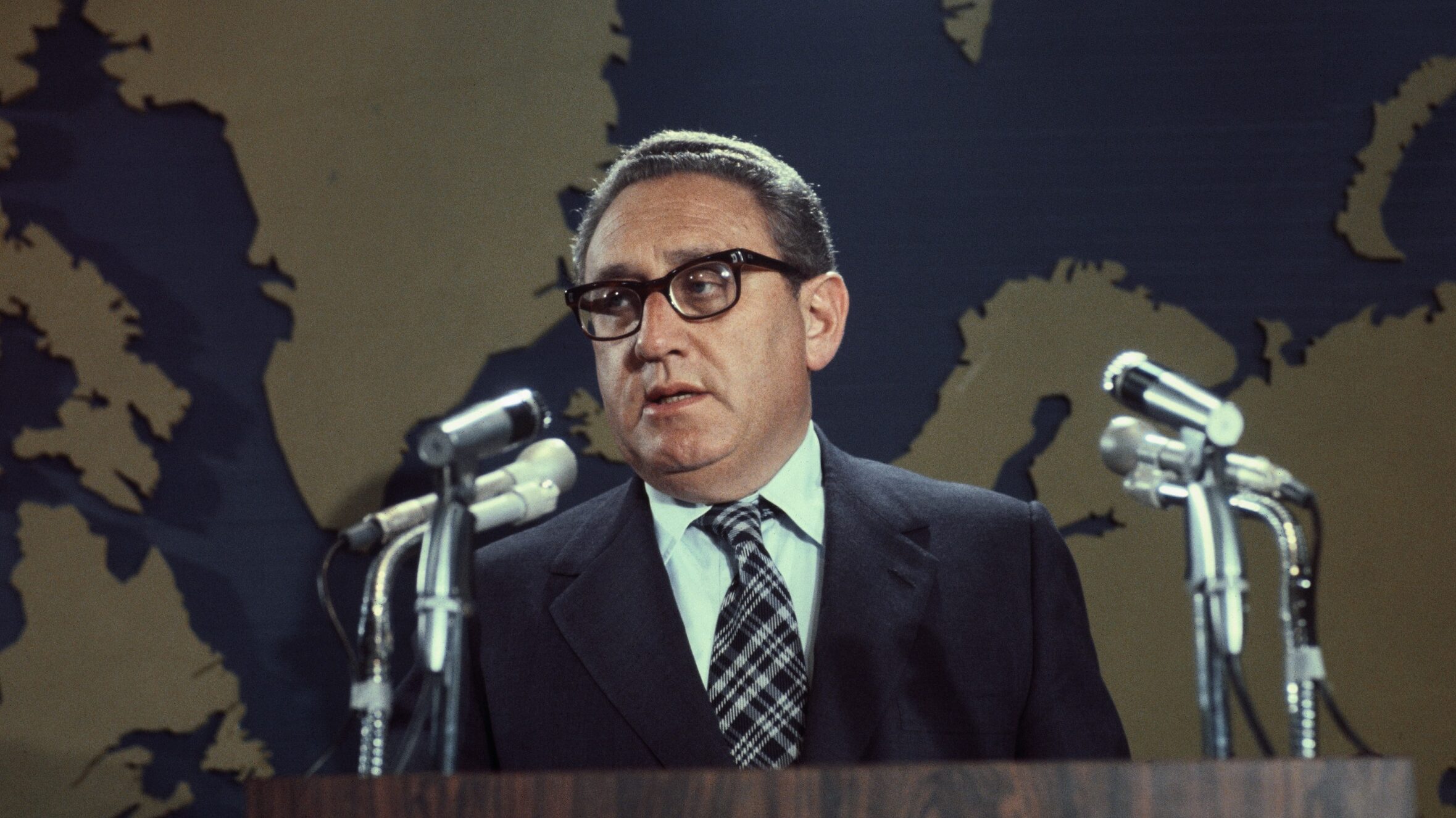Henry Kissinger: A Centennial Life of Diplomacy and Controversy
From Nobel Laureate to international statesman, Kissinger’s impact on global affairs and US foreign policy leaves a lasting legacy
By Marni Davimes/The Media Line
While it’s often said that “only the good die young,” sometimes the opposite is true. Such is the case for Henry Kissinger. While Kissinger may have been seen as a divisive figure, his passion for peace and tireless work ethic are undeniable truths.
Wednesday, November 29 marked the passing of former US Secretary of State Henry Kissinger. At an impressive 100 years of age, Kissinger saw no shortage of achievements throughout the course of his life. He also faced immense challenges, sometimes responding in ways that brought about significant criticism.
In addition to being the first Jewish person to hold the office of US secretary of state, Kissinger won a Nobel Peace Prize for negotiating a cease-fire in Vietnam in 1973. In 1972, he was named Time magazine’s Person of the Year. But those are just a few of the highlights.
Born Heinz Alfred Kissinger in Furth, Germany, on May 27, 1923, Kissinger and his family fled to the US in 1939 before the Nazi assault on Jews went into full force. Kissinger, an Orthodox Jew at the time, was bullied by antisemitic children in his hometown, making his transition into an American citizen a welcomed change of pace.
Despite fleeing a land and a government that swore to exterminate his people, Kissinger bravely returned to Germany in 1948, this time as an American soldier. During his time in the US Army’s 84th Infantry Division, he worked as a translator, providing valuable intelligence that enabled his unit to capture members of the Gestapo, ultimately earning himself a Bronze Star.
Kissinger attended Harvard University, where he excelled as a student, receiving a bachelor’s degree and a doctorate. In 1954, he transitioned from student to teacher, joining the Harvard faculty as an instructor and later as a professor of government. Finally, he rounded out his career at Harvard as the director of the Defense Studies Program.
Overlapping with his tenure at Harvard, Kissinger served as a consultant on security matters to several US agencies from 1955 through 1968, spanning the Eisenhower, Kennedy, and Johnson administrations.
In 1969, Kissinger joined the Nixon Administration as a national security adviser. He took on the role of secretary of state in 1973, continuing in both jobs under President Gerald Ford after Nixon’s resignation. In 1975, Kissinger left the National Security Council, staying on as secretary of state until the end of Ford’s term in office.
The role Kissinger played in global events, including the Vietnam War, the creation of diplomatic relations with China, groundbreaking US-Soviet arms control talks, and increased ties between Israel and the surrounding Arab countries, underscore the permanent mark he left on US foreign policy.
Kissinger didn’t let the inevitability of old age stop him from staying involved in international affairs. When it came to the terrorist atrocities in Israel on October 7 of this year, Kissinger wasn’t shy to share his opinion regarding growing global antisemitism and the threat of terrorist groups like Hamas.
“The Middle East conflict has the danger of escalating and bringing in other Arab countries under the pressure of their public opinion,” Kissinger warned. He referenced the lessons learned from the Yom Kippur War, which saw an Arab coalition led by Egypt and Syria attack Israel.
Kissinger’s efforts to end Israel’s Yom Kippur War in 1973 popularized the term “shuttle diplomacy,” which could be used to describe the mediation from Qatar, Egypt, and the US in Israel-Hamas truce talks earlier this week.
He professed that the goal of Hamas and those who support it “can only be to mobilize the Arab world against Israel and to get off the track of peaceful negotiations.”
While Kissinger’s legacy can’t be denied, some of his decisions over the years received sharp criticism, resulting in adversarial relationships with several people and groups.
When delivering the Atlantic Council’s Christopher J. Makins Lecture in 2009, Kissinger addressed the notion that his career didn’t win him universal love with a bit of humor:
“One of the reasons I have not sunk into the oblivion which Brent [Scowcroft] claims usually befalls ex-secretaries of state is because I have very many, very determined enemies. And every year or so, somebody writes a so-called exposé, and that leads to a long discussion which at least prevents me from being forgotten.”
Kissinger passed at his home in Connecticut, according to a statement posted to his website. He is survived by his wife, Nancy, two grown children, and five grandchildren.


